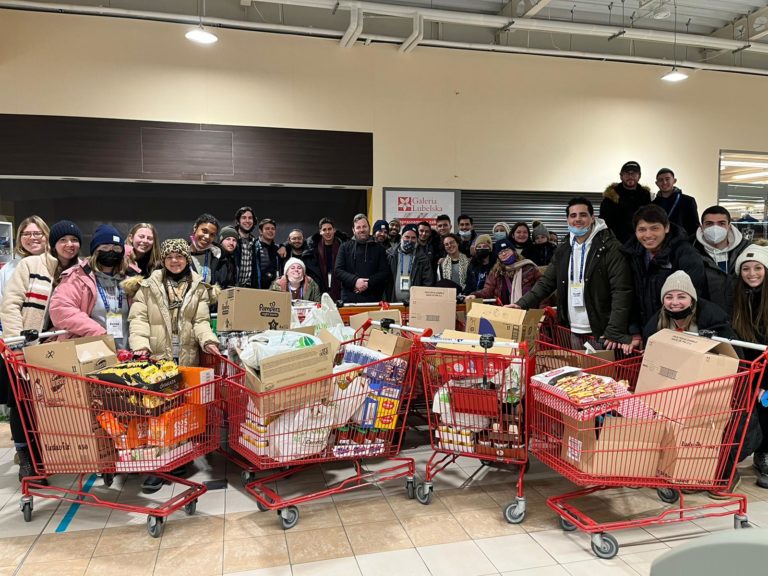
“We had just come back from Majdanek Concentration Camp. It was a very tough morning, seeing where our ancestors were taken from us and mass murdered,” said Inbal Amit, a University of Florida student. “Going from that we went to the Yeshiva and it was housing hundreds of Ukrainian refugees.”
Past and present overlapped for a group of college students visiting Poland on an organized Holocaust remembrance trip last week. While touring sites once occupied by Nazis more than 80 years ago, the group came face to face with hundreds of refugees fleeing Ukraine.
After touring Majdanek Concentration Camp, the group’s next stop was to the prominent Chachmei Lublin Yeshiva Synagogue in Lublin, a stone’s throw from the Polish-Ukrainian border. When the group of 32 students and trip leaders arrived, what they encountered was far from historical: hundreds of beds hosting Ukrainian refugees.
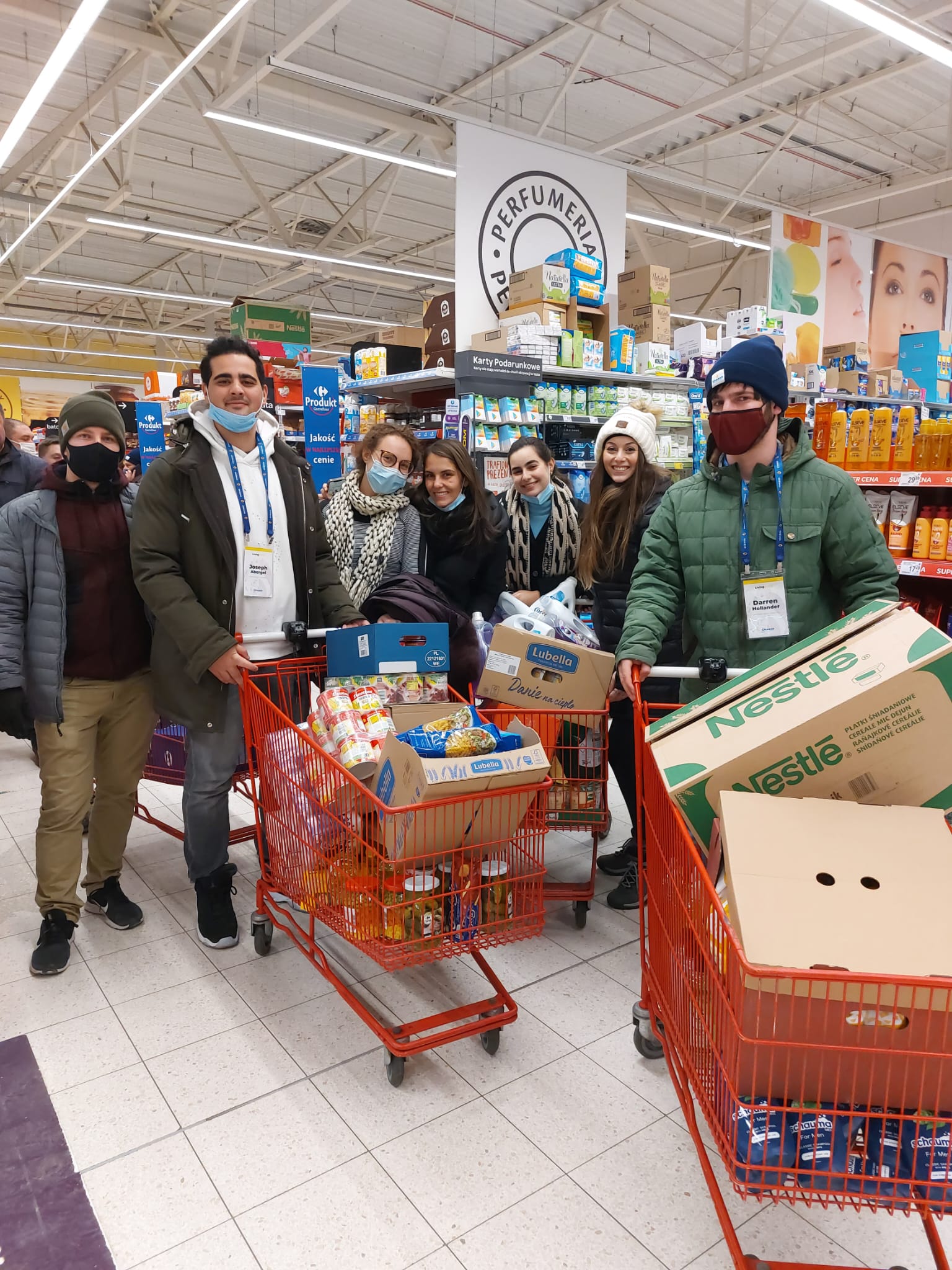
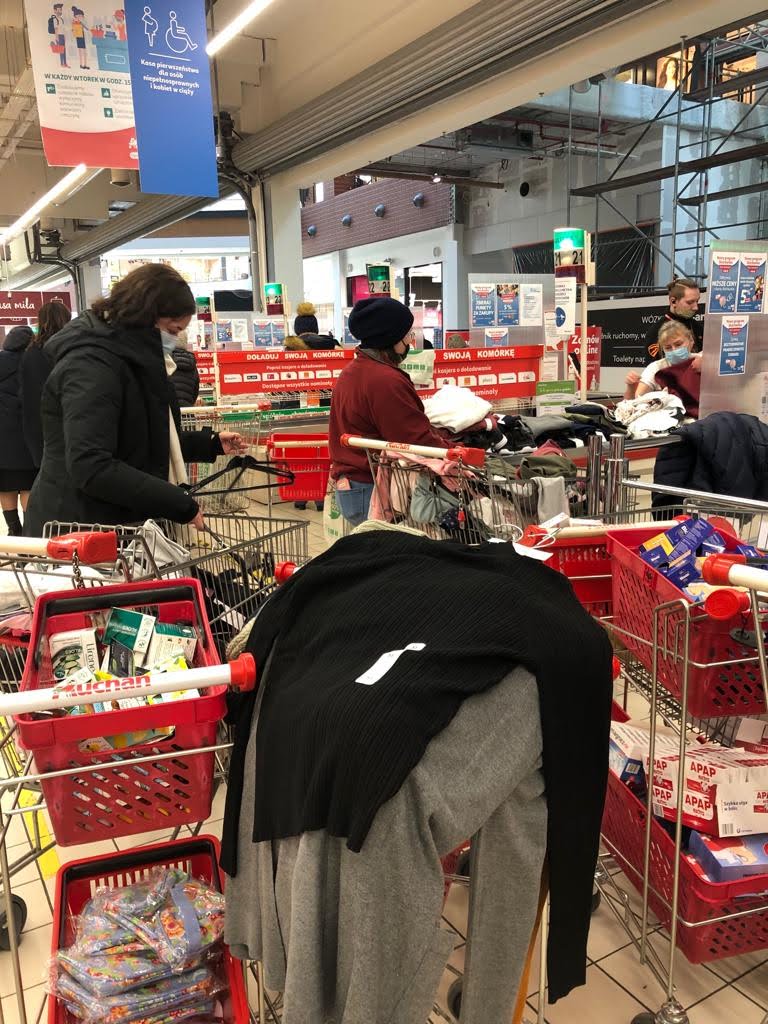
Since Russia’s invasion of Ukraine, more than 1.4 million Ukrainians have crossed into Poland – the largest influx of refugees the country has seen since World War II.
“We walked in there and they were completely out of food and common things, so we were like: how can we help?” Amit explained. “That turned into a conversation about collecting some money, possibly going to the store and buying things that they really needed.”
The students quickly posted to social media about the situation and in a couple of hours they collected thousands of dollars.
“That night I believe we had fundraised about $3,000. We went straight to the grocery market with the list that they had provided,” said Ester Teper, a 20 year-old Vanderbilt University student.
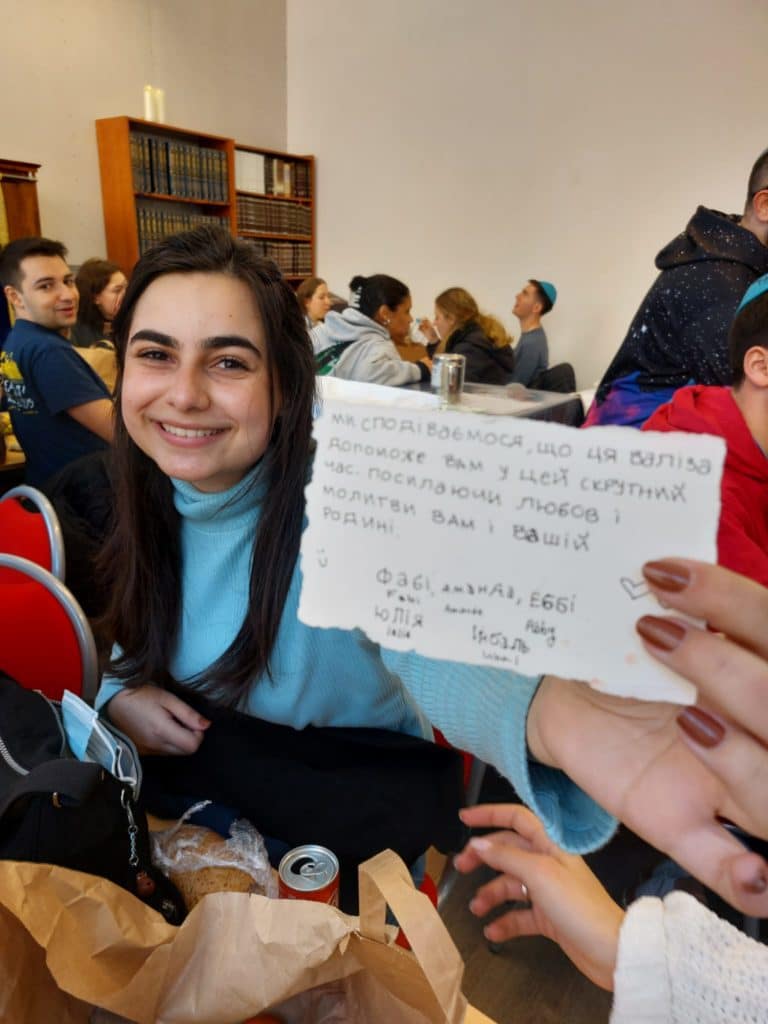
“It was inspiring. We all just came from that pile of ashes.” explained their trip leader Nechama Ginsburg. “And suddenly we’re here doing whatever we can to help.”
They left the grocery store with dozens of filled carts.
“We’re looking at every aisle, every section, thinking ‘maybe they need this, maybe they need that,’ maybe they need a bra, a toothbrush, chocolate,” explained Ginsburg. “Everyone was so hungry after a long day, dinner ended up being at 10:30 p.m., but no one was thinking about that.”
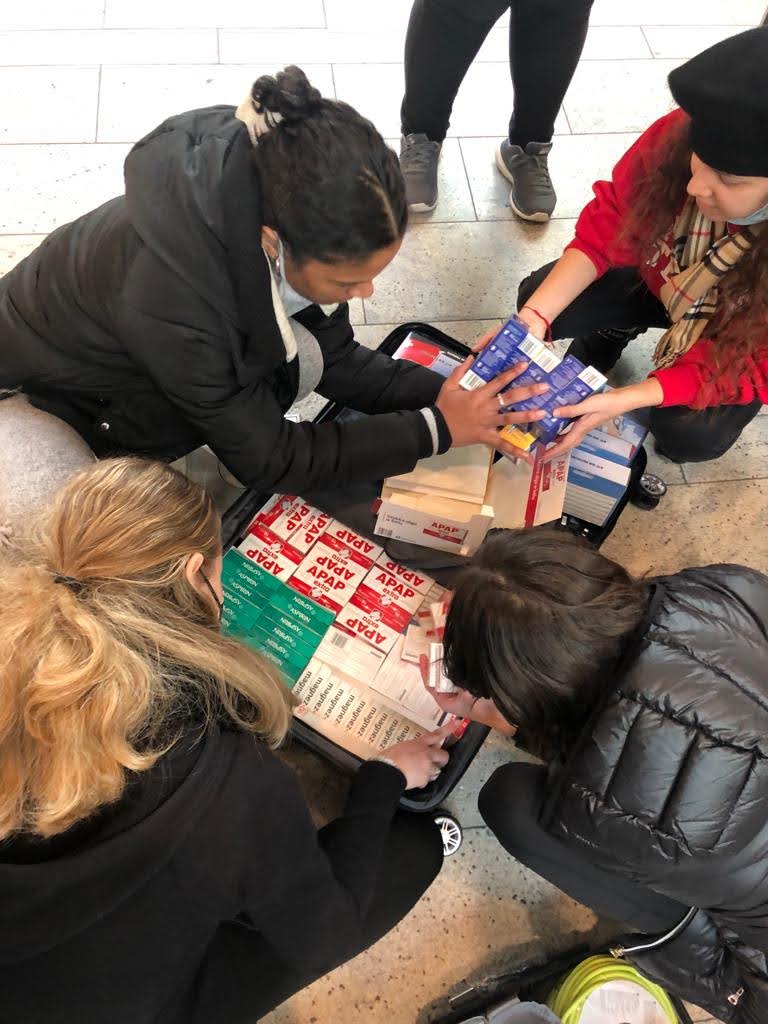
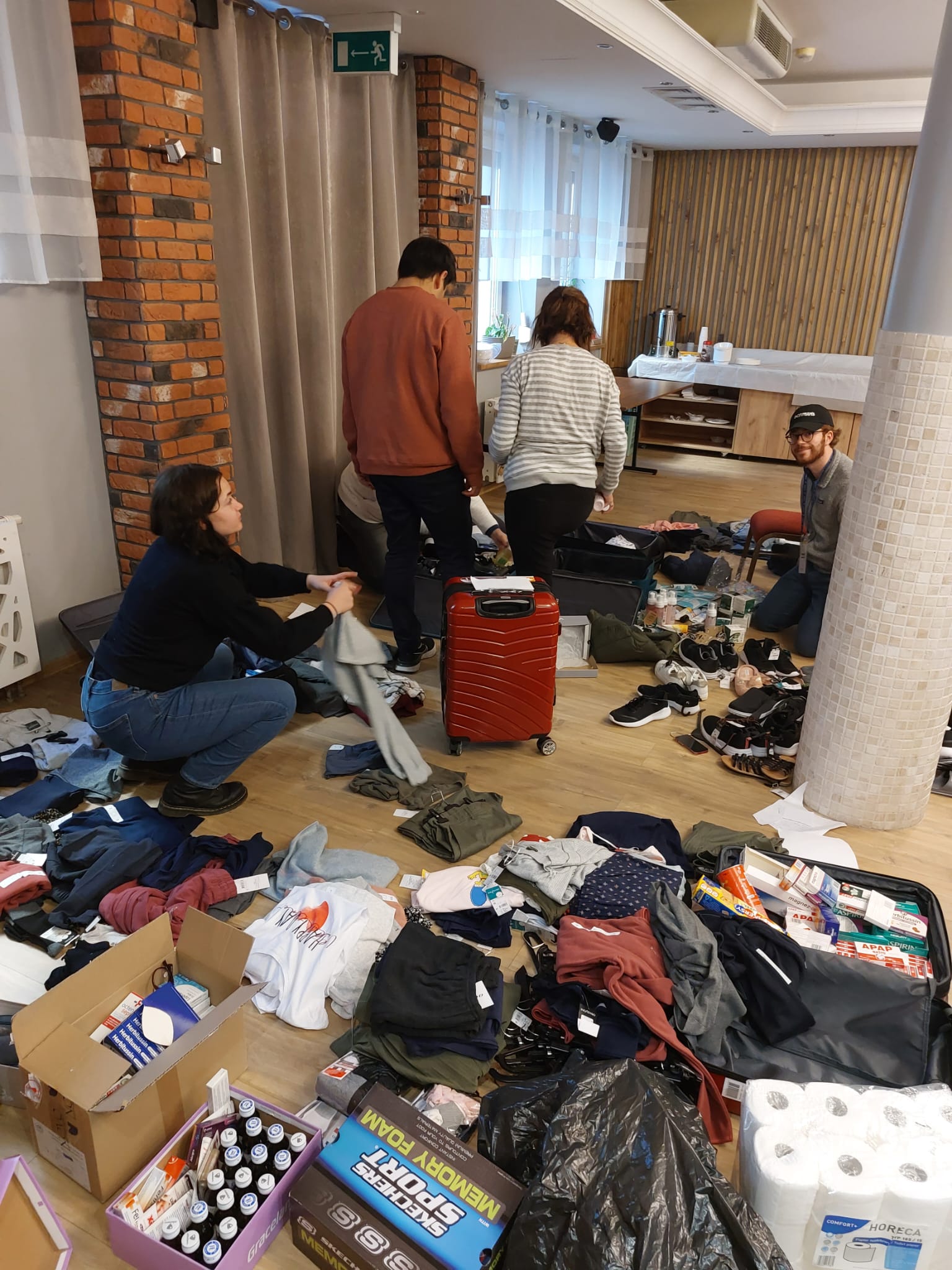
Hundreds of Ukrainians, both Jewish and non-Jewish, have made their way through the Yeshiva mostly to rest for a few nights before continuing to more permanent locations.
“When we came back with all the groceries that we had gotten, they started crying,” said Teper. “They were just so overwhelmed with the amount of food that we had gotten and even though it seemed like a lot, they said that it would last for three days, which kind of shows the magnitude of the crisis. Even though we had gotten so much, it’s not going to last very long.”
Since they initially posted to social media, the group raised a total of $10,000 and had to hire a truck for a second grocery run.
“It was very spur of the moment because we had a packed itinerary planned, but we said, ‘let’s put [our plans] on the side for a second because people need help,’” said Amit.
“We were able to talk with these families and learn what they really needed,” added Teper. “Some people come with not even an extra change of clothes, or maybe just one extra change of clothes.”
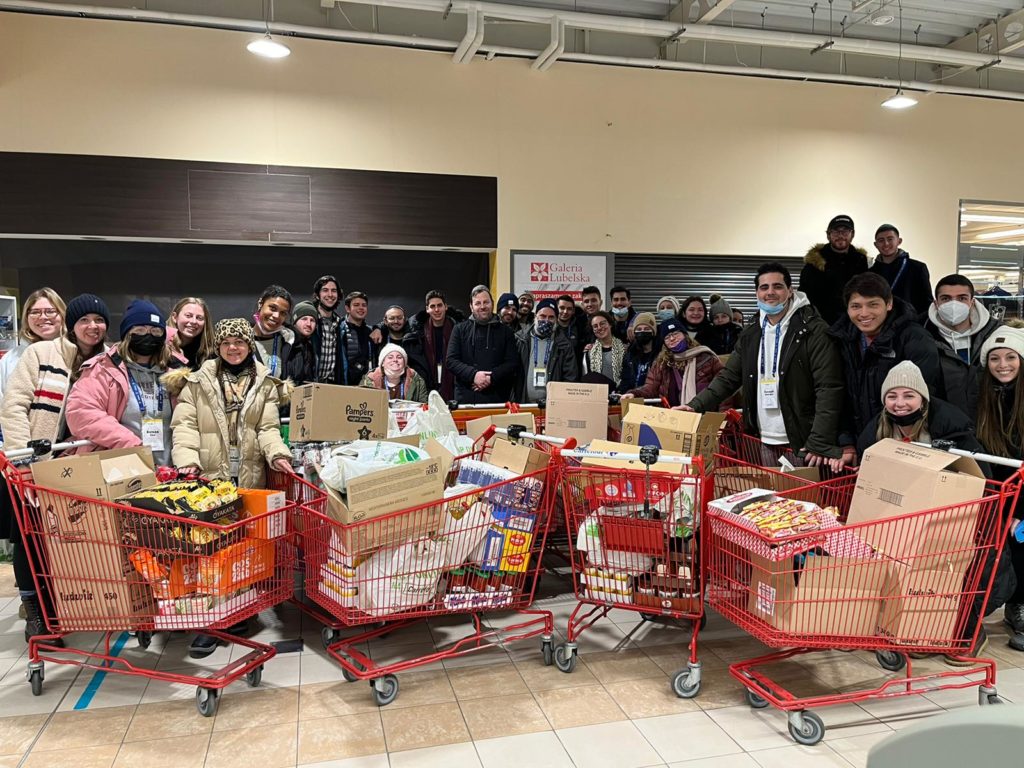
The group said speaking with the Ukrainian families gave them a sense of perspective.
“They’re completely broken. You know, they left Ukraine, left their houses, some even left family members, their pets, and they came with a suitcase, really not knowing what the future held,” said 19-year-old Essy Manopla. “They’re shy to say what they need, but they need everything.”
It’s the little things that can make the biggest difference, said University of Florida student Harrison Friedman.
“One family has a dog and they were fortunate enough to be able to bring their dog but they had nothing for their dog to eat, no food, treats, just a small cage,” he said. “It’s all the little things in life that you don’t really think about, the things you use on a day-to-day basis that these families need.”
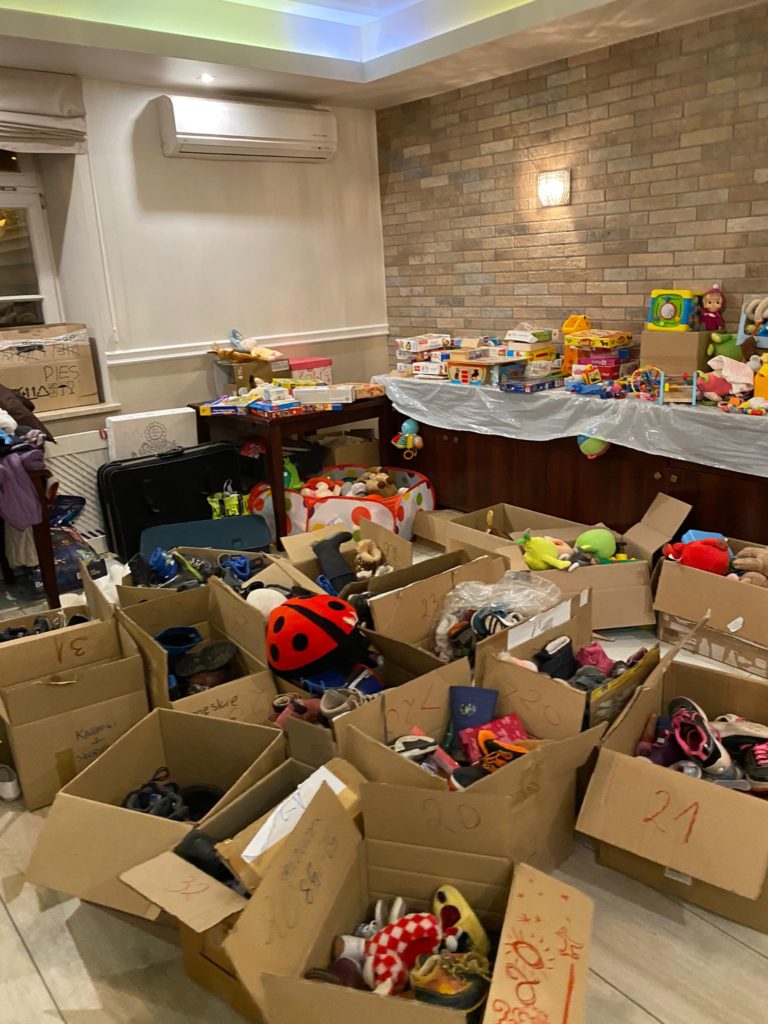
The experience made the trip more impactful than the students could have imagined, they told me from Krakow.
“I’ve never been so sad and so happy within one day,” said Amit. “To me, it kind of felt like two polar opposites, going from the ruins of what was into what we can do to help other people.”
Though the trip was only one week, the students paused certain items on the itinerary to provide support to Jewish organizations on the ground.
“It’s really humbling, we’ve been able to help a bunch of different organizations. We were just assembling furniture at the Chabad of Krakow,” said Teper. “One family had just come by and they had absolutely nothing. We were able to make boxes with all the houseware and so that they would be able to at least start some semblance of a normal life.”
The contrast between past and present was particularly touching for the students, they said.
“These people are being displaced. It’s very much resembling the displacement of Jews from their homes,” said Teper.
“It’s a very eerie resemblance to everything that we are learning about on this trip,” added Amit. “But it is very motivating to see how much the Polish community has stepped up and how much the rest of Europe has stepped up to help.”
How to help
Right now access to basic supplies is limited and shortages of goods are reported across Ukraine. Further complicating relief efforts is the shutdown of transportation due to a swell of refugees trying to make their way from the fighting.
Several Jewish organizations, along with the Israeli government, are on the ground coordinating efforts.
- The Jewish Agency is working to assist refugees to get to Moldova and has opened a hotline for assistance.
- HIAS is working with NGOs in place in Ukraine to provide assistance to refugees.
- United Hatzalah is coordinating with its Ukraine chapter to get people out of areas where there is fighting and to provide medical assistance to those who are injured.
- JDC is on the ground in Ukraine providing meals to the elderly and children.
Originally Published Mar 16, 2022 09:32AM EDT
